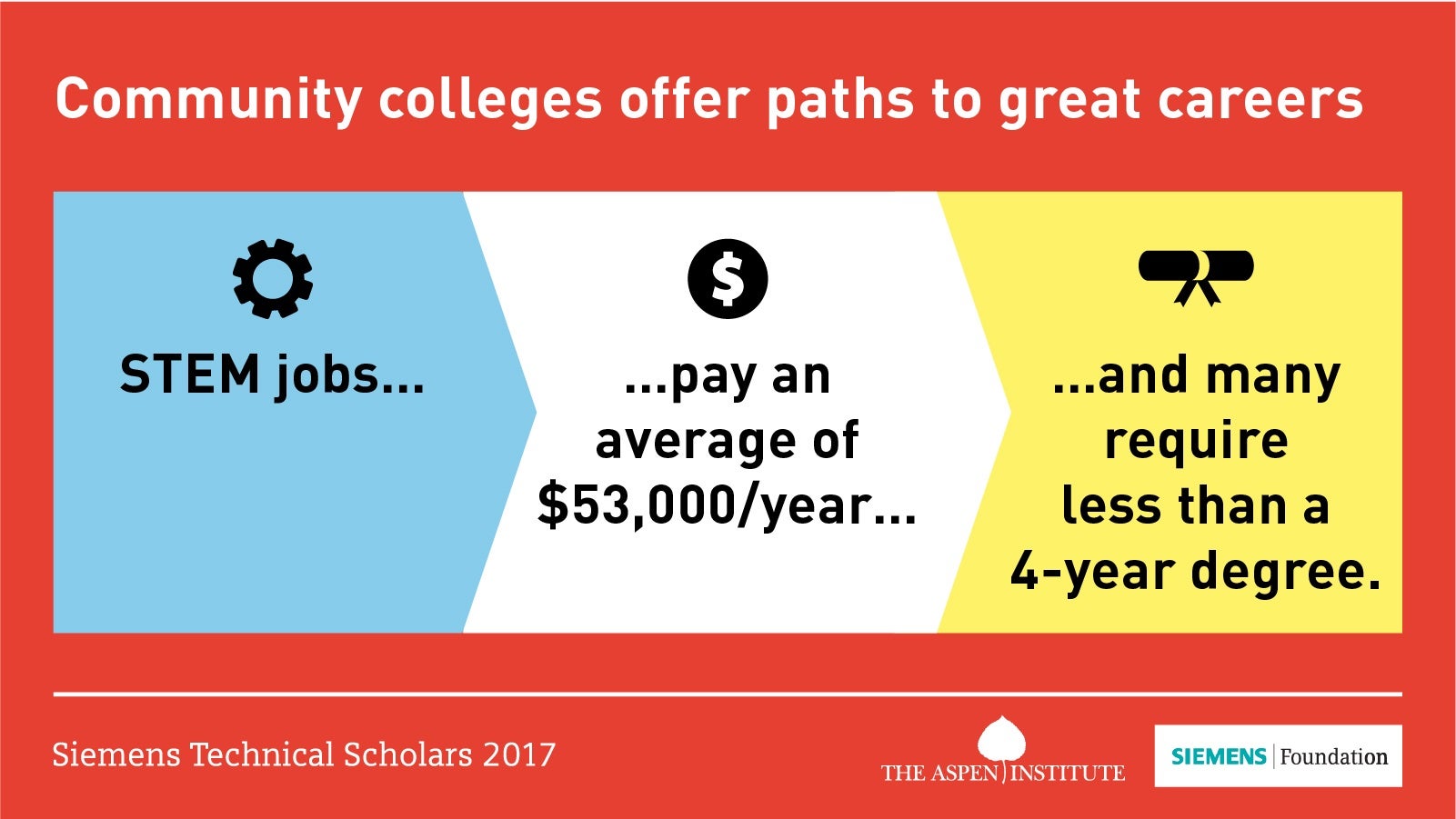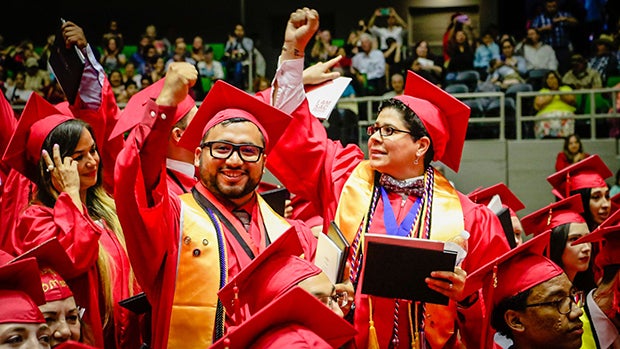It’s no secret that a high school diploma isn’t enough to launch most people into a rewarding career with solid wages. But too few understand that what you choose to study defines the value of your degree in the labor market. And it’s not always about the length of your degree program.
Bryant Muniz is the first in his family to go to college. But beyond the expanded opportunity Bryant gets from getting a college education is what and where he chose to study: radiologic technology at El Paso Community College. This program is a proven launching pad for future success: 90 percent of students graduating get a job within six months after completing a two-year degree. Talk to Bryant and his professors for just a few minutes and you know he will have a choice of a good job right after school or the option of continuing his education in a four-year degree program to achieve his ultimate goal of becoming a physician assistant.
Community colleges across the country are training people for the workforce with the kinds of skills they need to earn a living to support their families.

Go north to Nebraska and you’ll find Ian Folkers, a student in diesel technology at Northeast Community College – another program with strong graduation and employment rates. Ian understands that his career looks very different from those of past diesel mechanics. He is mastering complex technology and learning the critical problem-solving skills needed to evolve with advancing technology.
Indian River State College, along Florida’s central east coast, is 60 miles from the nearest four-year college or university, but it’s where Nicole Orozco and Maximillian Clemons are on the path to achieving their dreams of becoming nurses. Indian River’s program graduates 88 percent of its students and places 92 percent in jobs with average earnings over $51,000 – that’s about $12,000 above the average wages for other workers in that area.
Bryant, Ian, Nicole, and Max are four of the 51 students named today as the 2017 class of Siemens Technical Scholars, a partnership between the Aspen Institute and the Siemens Foundation. Through their stories, they showcase the voices of economic opportunity in STEM technical careers.
There are hundreds of thousands of talented young people just like them across the country who can benefit from an outstanding career in a STEM field. And there are many employers in the health care, energy, advanced manufacturing, and information technology sectors hungry for skilled workers. Since the end of the recession, jobs in these fields have rebounded, and they generally pay very well directly out of community college.
The problem: Many young adults don’t know about these opportunities or how to access them. And, in some cases, employers and community colleges may not be partnering closely enough to make sure that two-year programs are turning out skilled workers ready to hit the ground running. That’s where Siemens Technical Scholars comes in. We’re working with The Aspen Institute and outstanding community college STEM programs to spread the word and learn best practices, like aligning what community colleges do with what employers need and making clear that they want the honest feedback needed to get it right. And we’re learning about how employers who invest in training for students and potential employees, as well as the large machinery, lab equipment, and student tools that community colleges need to develop the skills need for in-demand STEM jobs, are competing to win in their industries.
Over the coming years, we look forward to celebrating the success of these scholars as they become the next generation of leaders in STEM and their communities. These students are our future and STEM gives them the opportunity to secure their own economic futures. We must learn more about what exceptional employer-community college partnerships do across the country so that more of our nation’s colleges deliver the STEM talent our nation needs – and change hundreds of thousands of lives along the way.
Employers are clamoring for more skilled STEM workers who we know can be trained well at the community college level. The 2017 Siemens Technical Scholars – and the programs that educate them – are leading the way.
You can learn more about the 2017 Siemens Technical Scholars.
David Etzwiler is CEO of the Siemens Foundation.

